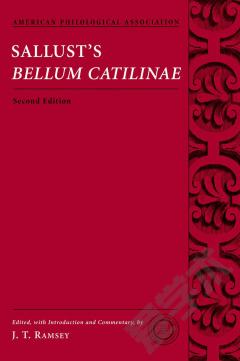Sallust's Bellum Catilinae
In his Bellum Catilinae, C. Sallustius Crispus or Sallust (86-35/34 B.C.) recounts the dramatic events of 63 B.C., when a disgruntled and impoverished nobleman, L. Sergius Catilina, turned to armed revolution after two electoral defeats. Among his followers were a group of heavily indebted young aristocrats, the Roman poor, and a military force in the north of Italy. With his trademark archaizing style, Sallust skillfully captures the drama of the times, including an early morning attempt to assassinate the consul Cicero and two emotionally charged speeches, by Julius Caesar and Cato the Younger, in a senatorial debate over the fate of the arrested conspirators.
{{comment.content}}








 京公网安备 11010802027623号
京公网安备 11010802027623号